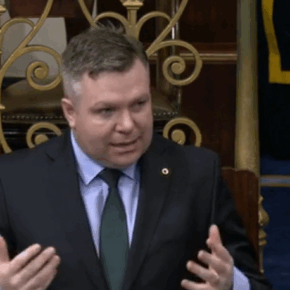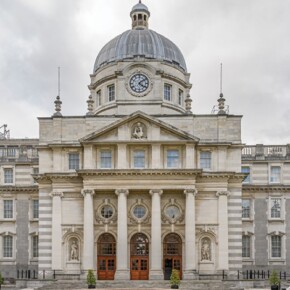Irish Cycling Campaign calls for immediate action amid rising road fatalities
Padraig Conlon 02 Jan 2025
The Irish Cycling Campaign says it is “gravely concerned” at the rising number of road fatalities in Ireland, particularly among vulnerable road users such as cyclists, pedestrians, and e-scooter users.
As of December 31st, 2024, 178 people have died on Irish roads – a grim continuation of last year’s trends.
Vulnerable road users, including pedestrians (39 deaths), cyclists (11 deaths), e-scooter users (4 deaths), and motorcyclists (17 deaths), account for approximately 39% of the total road fatalities.
These statistics do not take into account the impact of the many serious injuries caused by road collisions.
In a statement, the Irish Cycling Campaign said:
“This past week alone has seen multiple fatalities involving hit-and-run incidents where vulnerable road users have been victims, reflecting a broader crisis of accountability and enforcement on Irish roads.
“These tragic incidents underscore the urgent need for structural changes to ensure greater road safety for all road users.
“Systemic change is needed through more sustainable transport, the design of roads and streets, through stricter enforcement of traffic laws, and through evidence-based educational campaigns.
“Over the past 15 years, Garda National Roads Policing Bureau staffing has declined by over 50% in some counties, reaching critically low levels.
“Between 2023 and 2024 alone, there was a net reduction of 154 frontline Gardaí across the network of nearly 570 Garda stations.
“This significant decline severely undermines the enforcement of traffic laws and the deterrence of dangerous driving behaviours.
“Recent judicial decisions have raised concerns about the enforcement of traffic laws in Ireland.
“In December 2024, Judge Andrew Cody dismissed over 30 speeding cases in Portlaoise District Court, criticising the fairness of the speed zone in question, ignoring the reality of a number of road deaths in the Portlaoise area in recent years.
“Similarly, in September 2024, a driver caught exceeding 120 kmph avoided disqualification after a judge ruled the speeding was unintentional.
“Such rulings undermine efforts to deter dangerous driving behaviours, ignore a robust road safety evidence base, and compromise road safety at a time when we need the judiciary to fulfill their role in keeping our roads safe.
“The Campaign welcomes the upcoming reform of the Road Safety Authority (RSA) and the planned replacement of the RSA with two new agencies.
“This reform is urgently needed. The Campaign is calling on government to ensure that the road safety advocacy remit is underpinned with well-resourced expertise in sustainable transport and public health.”
Neasa Bheilbigh, Chairperson of the Irish Cycling Campaign, stated: “Vulnerable road users make up nearly 40% of all fatalities on Irish roads this year.
“This is a shocking and unacceptable statistic that demands immediate action.
“The government has a responsibility to protect the most vulnerable people on our roads.
2We know what works: safe and segregated infrastructure for walking and cycling, robust enforcement of traffic laws, and investment in public transport.
“It’s time for our leaders to act decisively.”
Dave Tobin, Vice Chairperson of the Irish Cycling Campaign, added: “Fianna Fail and Fine Gael are now drafting a new Programme for Government.
“This is a once-in-a-generation opportunity to prioritise active travel and improve safety for vulnerable road users.
“We are calling for at least 20% of the transport budget to be allocated to walking and cycling as recommended by the UN to save lives, reverse pollution and reduce carbon emissions.
“This level of investment would save lives, while creating more liveable towns and cities.
“Safe infrastructure is not just a luxury – it’s a necessity.”
With a new Programme for Government currently being developed between Fine Gael and Fianna Fáil, the Irish Cycling Campaign calls for:
-
Safe and Segregated Active Travel Infrastructure: Properly funding and prioritising active travel infrastructure is crucial. The Campaign urges the government to allocate at least 20% of the national transport budget for walking and cycling, alongside significant investment in public transport solutions to help reduce car traffic on our roads. This commitment would align with international best practices and support the government’s climate and safety goals. Investment in active travel makes our roads safer for all road users, improves public health, reduces traffic congestion, and reduces air and noise pollution.
-
Engineering-First Solutions: Infrastructure changes, including protected cycle lanes, improved pedestrian crossings, and better road design, must be prioritised as the most effective way to prevent road deaths and injuries by reducing driver collisions.
-
Enhanced Traffic Policing Resources: Immediate restoration and strengthening of Garda Roads Policing staffing is necessary to ensure laws are enforced and dangerous behaviours are deterred.
-
Strong Political Will: The government must use the upcoming Programme for Government to commit to a sustainable, safe, and equitable transport system. The government must use the upcoming Programme for Government to commit to a sustainable, safe, and equitable transport system. Relevant expertise and streamlined processes at local authority level is required for urgent delivery of safer roads in our communities. This should also include expediting the delivery of revised speed limits.
-
RSA Reform: Any new entity tasked with road safety advocacy and education must take a systems-wide approach and be resourced with the relevant expertise to help ensure the delivery of engineering solutions, enforcement and behavioural change measures to tackle the causes of injury and death on our roads.
The Irish Cycling Campaign emphasises that road deaths and injuries are not inevitable; they are preventable.
Properly funding and designing a transport system that protects vulnerable road users must be at the core of government policy.
This is a once-in-a-generation opportunity to reverse the devastating trends on Ireland’s roads and create a safer, greener, and more liveable country for everyone.











